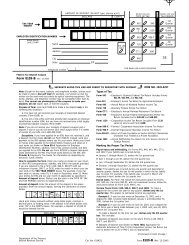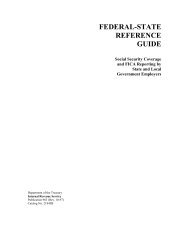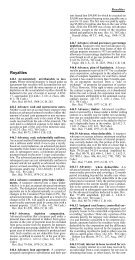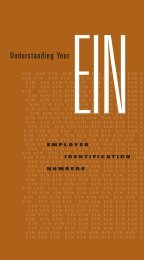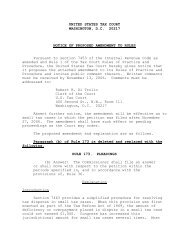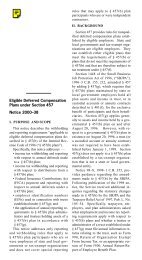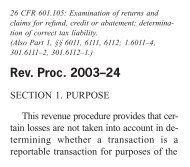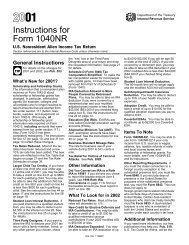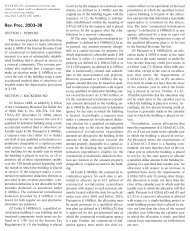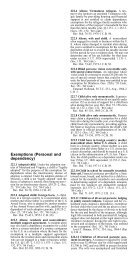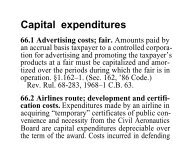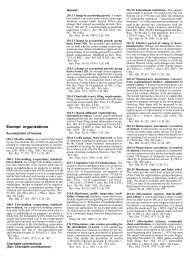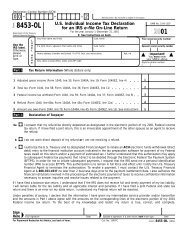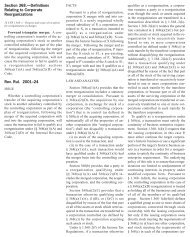Auto Dealerships - Audit Technique Guide - Uncle Fed's Tax*Board
Auto Dealerships - Audit Technique Guide - Uncle Fed's Tax*Board
Auto Dealerships - Audit Technique Guide - Uncle Fed's Tax*Board
You also want an ePaper? Increase the reach of your titles
YUMPU automatically turns print PDFs into web optimized ePapers that Google loves.
insurance contract reinsured through the offshore PORC if no Subpart F election has been made<br />
to include this foreign source income as worldwide income. If the Subpart F election is made, this<br />
income would be taxed as United States income under IRC section 953(d), subject to the Foreign<br />
Tax Credit. The offshore PORC would be considered subject to Subpart F because it is a<br />
controlled foreign corporation as defined under IRC sections 951(b) and 953(a).<br />
There may be an IRC section 482 pricing issue because the PORC is owned by the same<br />
shareholder who owns the domestic auto dealership.<br />
The PORC may be considered a sham corporation if it has no reason for existence other than<br />
diverting or sheltering dealership income for the benefit of the dealer owner. Thorough analysis<br />
of these transactions may conclude that profits from the PORC are being channeled into a fund<br />
held effectively for the dealers personal use. This arrangement would fail the economic substance<br />
test found in the Bail Bonds case and be considered a sham. See Bail Bonds by Marvin Nelson,<br />
Inc. v. Commissioner, 820 F.2d 1543, (9th Cir. 1987).<br />
In Malone and Hyde, Inc.,and Subsidiaries v. Commissioner, 76 AFTR2d Par. 95-5250, the<br />
United States Court of Appeals for the Sixth Circuit ruled that payments by a parent corporation<br />
to a subsidiary for "insurance" are not deductible. The court distinguished the case from<br />
Humana, Inc. v. Commissioner, 881 F.2d 247 in which the brother/sister corporations were<br />
allowed a deduction for such payments.<br />
The ruling in Malone and Hyde, Inc., above, has wide application to auto dealers. Producer<br />
Owned Reinsurance Companies (PORC) that reinsure dealer obligor extended service contracts<br />
should be examined carefully to see if they meet the tests outlined in the Court’s opinion. Was the<br />
PORC adequately capitalized? Is there indemnification in excess of the capitalization amount? Is<br />
there a hold harmless agreement between the PORC and/or the dealership and the fronting<br />
company? If so, the risk of loss may not have shifted and the payments may qualify as nondeductible<br />
"self insurance."<br />
PORCs that reinsure credit life and accident and health policies are more complicated. Since the<br />
risk is that of the vehicle purchaser rather than the dealer, it is more difficult to make the<br />
argument that risk did not shift. However, the Court began its opinion by stating that it must first<br />
determine if the reinsurance company was created for a legitimate business purpose or whether it<br />
was a sham. Dealers in states that have no commission cap or dealers who reduce their<br />
commission amount after formation of the PORC risk the characterization of the PORC as a<br />
sham. Other means may have been available for the dealership to increase its income from the<br />
sale of credit life coverage rather than the creation of an undercapitalized, off-shore reinsurance<br />
company.<br />
The Courts also addressed reinsurance companies in William L. McCurley, et ux. v.<br />
Commissioner (T.C. Memo. 1997-371) the Tax Court held that the owners of two automobile<br />
dealerships received constructive dividends from a foreign corporation that reinsured credit<br />
insurance policies issued through the dealerships. The Court found that the reinsurance company<br />
never paid dividends, that it never demanded payment on the notes to the shareholders, that the<br />
advances did not bear interest, that the advances were made with reference to ownership interests,<br />
13-6



